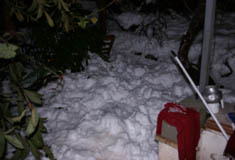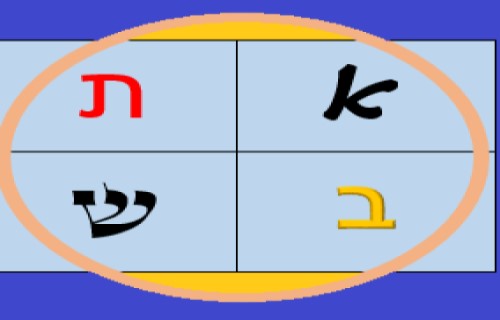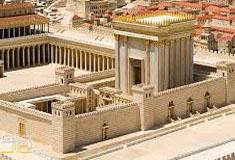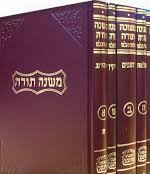Summary of the Halachot of Yom Kippur
הרב שי טחןה תשרי, תשפה07/10/2024A Summary of the Halachot of Yom Kippur- in English. very important
תגיות:יום כיפורהלכותצום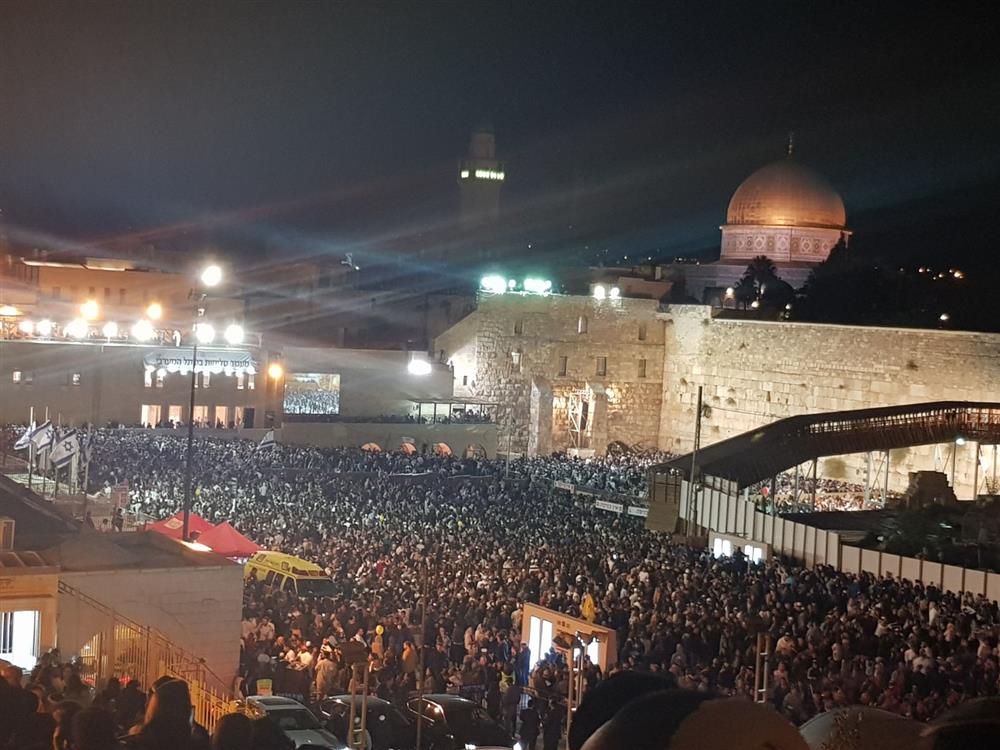
Fasting (Ta'anit)
- The fast on Yom Kippur is considered the strictest in Jewish law. It is not just a physical act of abstaining from food and drink but a spiritual one aimed at purification. The fast removes physical distractions, allowing us to focus entirely on prayer, reflection, and repentance.
to focus entirely on prayer, reflection, and repentance.
- Start and End Time: The fast begins at sunset on Erev Yom Kippur and continues until after nightfall the next day when three stars are visible in the sky. The exact time depends on one’s location, and it's important to be precise.
There is a mitzvah to begin the fast slightly earlier than the official start time and to extend it beyond the designated end time. This practice is known as Tosefet Yom Kippur, and it involves adding a few minutes of sanctity to the beginning and end of Yom Kippur
- Seudah Mafseket (Pre-fast Meal): Before the fast begins, it is a mitzvah to eat a festive meal called the Seudah Mafseket. This meal strengthens the individual physically for the fast but is also intended to serve as the festive meal of the holiday. Since there is no meal during Yom Kippur itself, we celebrate it beforehand. Therefore, it should be a joyous meal, with the table set nicely and a good, plentiful meal served. This meal reflects both the seriousness of the upcoming fast and the celebration of Yom Kippur as a holy day.
-Eating on Erev Kipur: Besides the Seudah Mafseket, there is a special mitzvah to eat an extra meal on Erev Yom Kippur, starting from the morning. According to the Arizal, one should consume double the amount of food compared to regular days. The Kaf HaChayim explains this to mean that one should wash for a bread meal twice that day. Others interpret it to simply mean eating more than one would on a regular day. This practice is rooted in the idea that by nourishing the body on Erev Yom Kippur, we honor the holiness of the day and strengthen ourselves for the fast.
- Who Fasts?
- Pregnant or Nursing Women: In general, they should fast, but if there is concern for their health or the baby’s health, they must consult a halachic authority to determine whether they should fast or follow the guidelines for eating in measured portions (less than a “shiur” at intervals as will be explained later).
- Ill or Elderly: Someone whose life may be endangered by fasting is required to eat or drink, but they should do so in small, measured amounts, as per halachic guidelines, unless more is necessary for their health. The elderly, who are very old and weak and cannot fast without endangering themselves, may also eat in measured amounts; however, those who are sick with a non-life-threatening illness are required to fast regularly. If they find it extremely difficult, they should consult a rabbinic authority for guidance.
Measurements for the sick
If someone is ill and fasting poses a serious health risk, they are permitted to eat and drink small measured amounts (shiurim), rather than normal portions. This allows them to technically avoid breaking the fast completely.
The specific measures are:
- For drinking: Less than a cheekful (about 30 ml) at a time.
- For eating: Less than the volume of a large date (approximately 30 grams) at a time.
These small amounts are spaced out by about 9 minutes (or as long as the person can wait). This approach is used to minimize the halachic violation while still protecting their health. If even the small measures are insufficient, the person may eat or drink more as needed. Always, a halachic authority should be consulted.
- Young Children: Children under the age of nine are not required to fast at all. However, from the age of ten until their bar/bat mitzvah, we educate them to fast for a few hours, depending on their strength. For example, if they normally eat breakfast at 9 AM, we encourage them to eat at 10 or 11 AM instead. It is advisable, if possible, for them to refrain from eating at night. Some children begin fasting for the entire day a year prior to their bar/bat mitzvah.
Prohibition on Wearing Leather Shoes
- Leather shoes may not be worn on the fast, even if they are only partially leather, such as having a leather upper. Some take extra stringency and choose not to wear any shoes at all, opting instead for heavy socks, but this is not required and is considered a chumra (stringency). One may wear shoes made from synthetic materials that imitate leather, as there is no concern that others will suspect them of violating the prohibition, since such shoes are common today.
Prohibition on Washing and Bathing
- Washing any part of the body is prohibited, even with cold water.
- Exceptions:
- After Restroom: Hand washing after using the restroom is permitted, but it should be limited to the necessary areas (up to the knuckles).
- Morning Netilat Yadayim: Upon waking, one should perform Netilat Yadayim, but only up to the knuckles, unless there is a specific need to wash further, such as removing dirt.
- Medical Reasons: If someone needs to clean a wound or treat a medical condition or take care of the sick, minimal washing is permitted.
Prohibition on Anointing (Sicha)
- What It Encompasses: The prohibition of anointing includes applying oils, creams, lotions, or perfumes to the body for the purpose of pleasure or beautification.
- Medical Exceptions: If someone requires ointment for medical reasons (e.g., treating eczema or a wound), they are allowed to apply it. Following the laws of taking medicine on Shabbat, it is permitted only if one is in significant pain or discomfort or if they require daily treatment.
- Cosmetics: Applying makeup, perfumes, or colognes is also prohibited, as they fall under the category of anointing for pleasure. However, this prohibition does not extend to deodorant if necessary for hygiene.
Prohibition on Marital Relations
- On Yom Kippur, both at night and during the day, physical intimacy is forbidden, similar to the restrictions observed during the Niddah period.
- The physical separation includes refraining from touching or sleeping in the same bed. It is recommended that spouses maintain the same level of modesty as during Niddah.
Teshuva: The Process of Repentance
Teshuva, often translated as "repentance" or "return," is a fundamental process of restoring one’s true self and relationship with Hashem after a transgression. The word itself means "to return," signifying the journey back to spiritual purity and closeness to Hashem. Here are the key components and stages of Teshuva:
1. Recognition of Sin
- Awareness: The first step in the process of Teshuva is recognizing that one has sinned. This involves honest self-reflection and an understanding of how one's actions have deviated from the path of righteousness.
- Understanding the Impact: Acknowledging the harm caused to oneself, to others, and to one's relationship with Hashem is crucial. This understanding can prompt a sincere desire to change.
2. Regret (Charata)
- Feeling Remorse: Genuine regret is essential in Teshuva. One must feel sorrow for the wrongdoing and the consequences that followed. This feeling should stem from recognition of the lost opportunity for a better life and relationship with Hashem. Regret is not merely an intellectual acknowledgment but an emotional response that motivates change and repentance.
3. Confession (Vidui)
-Essence of Vidui: Vidui is a crucial part of the process of Teshuva. It involves acknowledging our sins and taking responsibility for them. By verbalizing these confessions, we confront our wrongdoings directly and sincerely ask for divine forgiveness.
- Personal and Communal Confession: The Vidui is recited both privately and communally. The communal recitation highlights the idea that we bear responsibility not only for our own sins but also for the moral failures of the community as a whole. We ask for forgiveness on behalf of ourselves and our fellow Jews.
- Structure: Vidui is structured in alphabetical order, listing different categories of sins. This comprehensive format ensures that all types of sins are covered, including those committed unknowingly or unintentionally.
4. Commitment to Change (Kabbalah l’hatid)
- Making Resolutions: A sincere commitment to avoid repeating the same mistakes in the future is crucial. This includes creating actionable steps to foster personal growth and improve one's behavior.
- Concrete Plans: Setting specific goals, such as improving certain behaviors or engaging in positive actions, demonstrates genuine intent to change.
5. Restitution
- Making Amends: When possible, one should seek to rectify the wrongs committed. This may involve apologizing to those harmed, returning stolen property, or compensating for damages.
- Rebuilding Relationships: Repairing relationships that have been damaged is an important part of the Teshuva process.
6. Seeking Forgiveness
- From Hashem: While Hashem’s forgiveness is central to Teshuva, it is important to understand that sincere repentance is required. This forgiveness is often granted during the High Holidays, particularly on Yom Kippur, when the opportunity for atonement is heightened.
- From Others: Seeking forgiveness from those whom one has wronged is also essential. Chazal teach us that if one did not ask forgiveness from others and appease them, they are also not forgiven for the sins committed toward Hashem.
Tefillah (Prayer)
- The Five Tefillot:
- Ma’ariv: Recited after Kol Nidrei, it includes the first Vidui and marks the beginning of the Yom Kippur day of prayer.
- Shacharit: The morning prayer service is enhanced with additional sections focused on Teshuva, including special piyutim (liturgical poems).
- Mussaf: The additional service includes a detailed recounting of the Kohen Gadol’s service in the Beit HaMikdash (Avodah service), a focal point of Yom Kippur service.
- Mincha: The afternoon service includes the reading of the Book of Yonah, which emphasizes the themes of repentance and divine mercy.
- Ne’ilah: The final prayer is the spiritual climax of Yom Kippur, with a special emphasis on the closing of the gates of heaven as the day of judgment comes to an end. The prayers are said with heightened urgency and sincerity.
Kol Nidrei
- Halachic Significance: Kol Nidrei is a legal formula that annuls vows made between a person and Hashem. It reflects the understanding that while we strive to make commitments, we often fall short, and Yom Kippur offers a chance to release ourselves from these unfulfilled vows.
- Emotional Weight: Though it is a simple text, Kol Nidrei is recited with great emotion, often accompanied by a haunting melody. This sets the tone for the day of solemn repentance and introspection.
Ne’ilah
- Closing of the Gates: Ne’ilah means “locking” or “closing,” and refers to the closing of the gates of judgment as the day of Yom Kippur ends. It is the last opportunity for sincere Teshuva before the fast concludes.
- Intensity: The prayers during Ne’ilah are often more intense, with the congregation standing throughout the service. There is a palpable sense of urgency, as we ask for Hashem’s mercy one last time before the book of life is sealed.
- Shofar Blast: At the end of Ne’ilah, the congregation stands for the final shofar blast, which marks the conclusion of Yom Kippur and the end of the fast. This long blast signifies
Havdalah
It's important to remember that one may not eat before Havdalah. However, someone who cannot wait for Havdalah may drink water after the fast is over, even if they have not yet heard Havdalah. A wife who finds it hard to wait for her husband to return from shul and perform Havdalah may do so herself and eat.
The Havdalah on this day differs from a regular Havdalah:
1. Blessing over Wine:
- As with every Motzaei Shabbat, the first blessing (Borei Pri Hagafe) is recited over the wine or grape juice.
2. Blessing over Spices:
- The second blessing (Borei Minei Besamim) is typically recited, but on Shabbat Yom Kippur, spices are generally not used. However, some opinions do require the use of spices.
3. Blessing over the Candle:
- The third blessing (Borei Me’orei HaEish) is recited over the candle. This candle is typically one that was lit before Yom Kippur and remained lit throughout the day. On Motzaei Shabbat Yom Kippur, many opinions hold that such a candle is not required, and one may light a new flame for Havdalah. Still, many ensure to use only the light that has been kept lit throughout the entire day.
May our prayers and Teshuva be accepted with love by our Father in Heaven.
- The fast on Yom Kippur is considered the strictest in Jewish law. It is not just a physical act of abstaining from food and drink but a spiritual one aimed at purification. The fast removes physical distractions, allowing us

- Start and End Time: The fast begins at sunset on Erev Yom Kippur and continues until after nightfall the next day when three stars are visible in the sky. The exact time depends on one’s location, and it's important to be precise.
There is a mitzvah to begin the fast slightly earlier than the official start time and to extend it beyond the designated end time. This practice is known as Tosefet Yom Kippur, and it involves adding a few minutes of sanctity to the beginning and end of Yom Kippur
- Seudah Mafseket (Pre-fast Meal): Before the fast begins, it is a mitzvah to eat a festive meal called the Seudah Mafseket. This meal strengthens the individual physically for the fast but is also intended to serve as the festive meal of the holiday. Since there is no meal during Yom Kippur itself, we celebrate it beforehand. Therefore, it should be a joyous meal, with the table set nicely and a good, plentiful meal served. This meal reflects both the seriousness of the upcoming fast and the celebration of Yom Kippur as a holy day.
-Eating on Erev Kipur: Besides the Seudah Mafseket, there is a special mitzvah to eat an extra meal on Erev Yom Kippur, starting from the morning. According to the Arizal, one should consume double the amount of food compared to regular days. The Kaf HaChayim explains this to mean that one should wash for a bread meal twice that day. Others interpret it to simply mean eating more than one would on a regular day. This practice is rooted in the idea that by nourishing the body on Erev Yom Kippur, we honor the holiness of the day and strengthen ourselves for the fast.
- Who Fasts?
- Pregnant or Nursing Women: In general, they should fast, but if there is concern for their health or the baby’s health, they must consult a halachic authority to determine whether they should fast or follow the guidelines for eating in measured portions (less than a “shiur” at intervals as will be explained later).
- Ill or Elderly: Someone whose life may be endangered by fasting is required to eat or drink, but they should do so in small, measured amounts, as per halachic guidelines, unless more is necessary for their health. The elderly, who are very old and weak and cannot fast without endangering themselves, may also eat in measured amounts; however, those who are sick with a non-life-threatening illness are required to fast regularly. If they find it extremely difficult, they should consult a rabbinic authority for guidance.
Measurements for the sick
If someone is ill and fasting poses a serious health risk, they are permitted to eat and drink small measured amounts (shiurim), rather than normal portions. This allows them to technically avoid breaking the fast completely.
The specific measures are:
- For drinking: Less than a cheekful (about 30 ml) at a time.
- For eating: Less than the volume of a large date (approximately 30 grams) at a time.
These small amounts are spaced out by about 9 minutes (or as long as the person can wait). This approach is used to minimize the halachic violation while still protecting their health. If even the small measures are insufficient, the person may eat or drink more as needed. Always, a halachic authority should be consulted.
- Young Children: Children under the age of nine are not required to fast at all. However, from the age of ten until their bar/bat mitzvah, we educate them to fast for a few hours, depending on their strength. For example, if they normally eat breakfast at 9 AM, we encourage them to eat at 10 or 11 AM instead. It is advisable, if possible, for them to refrain from eating at night. Some children begin fasting for the entire day a year prior to their bar/bat mitzvah.
Prohibition on Wearing Leather Shoes
- Leather shoes may not be worn on the fast, even if they are only partially leather, such as having a leather upper. Some take extra stringency and choose not to wear any shoes at all, opting instead for heavy socks, but this is not required and is considered a chumra (stringency). One may wear shoes made from synthetic materials that imitate leather, as there is no concern that others will suspect them of violating the prohibition, since such shoes are common today.
Prohibition on Washing and Bathing
- Washing any part of the body is prohibited, even with cold water.
- Exceptions:
- After Restroom: Hand washing after using the restroom is permitted, but it should be limited to the necessary areas (up to the knuckles).
- Morning Netilat Yadayim: Upon waking, one should perform Netilat Yadayim, but only up to the knuckles, unless there is a specific need to wash further, such as removing dirt.
- Medical Reasons: If someone needs to clean a wound or treat a medical condition or take care of the sick, minimal washing is permitted.
Prohibition on Anointing (Sicha)
- What It Encompasses: The prohibition of anointing includes applying oils, creams, lotions, or perfumes to the body for the purpose of pleasure or beautification.
- Medical Exceptions: If someone requires ointment for medical reasons (e.g., treating eczema or a wound), they are allowed to apply it. Following the laws of taking medicine on Shabbat, it is permitted only if one is in significant pain or discomfort or if they require daily treatment.
- Cosmetics: Applying makeup, perfumes, or colognes is also prohibited, as they fall under the category of anointing for pleasure. However, this prohibition does not extend to deodorant if necessary for hygiene.
Prohibition on Marital Relations
- On Yom Kippur, both at night and during the day, physical intimacy is forbidden, similar to the restrictions observed during the Niddah period.
- The physical separation includes refraining from touching or sleeping in the same bed. It is recommended that spouses maintain the same level of modesty as during Niddah.
Teshuva: The Process of Repentance
Teshuva, often translated as "repentance" or "return," is a fundamental process of restoring one’s true self and relationship with Hashem after a transgression. The word itself means "to return," signifying the journey back to spiritual purity and closeness to Hashem. Here are the key components and stages of Teshuva:
1. Recognition of Sin
- Awareness: The first step in the process of Teshuva is recognizing that one has sinned. This involves honest self-reflection and an understanding of how one's actions have deviated from the path of righteousness.
- Understanding the Impact: Acknowledging the harm caused to oneself, to others, and to one's relationship with Hashem is crucial. This understanding can prompt a sincere desire to change.
2. Regret (Charata)
- Feeling Remorse: Genuine regret is essential in Teshuva. One must feel sorrow for the wrongdoing and the consequences that followed. This feeling should stem from recognition of the lost opportunity for a better life and relationship with Hashem. Regret is not merely an intellectual acknowledgment but an emotional response that motivates change and repentance.
3. Confession (Vidui)
-Essence of Vidui: Vidui is a crucial part of the process of Teshuva. It involves acknowledging our sins and taking responsibility for them. By verbalizing these confessions, we confront our wrongdoings directly and sincerely ask for divine forgiveness.
- Personal and Communal Confession: The Vidui is recited both privately and communally. The communal recitation highlights the idea that we bear responsibility not only for our own sins but also for the moral failures of the community as a whole. We ask for forgiveness on behalf of ourselves and our fellow Jews.
- Structure: Vidui is structured in alphabetical order, listing different categories of sins. This comprehensive format ensures that all types of sins are covered, including those committed unknowingly or unintentionally.
4. Commitment to Change (Kabbalah l’hatid)
- Making Resolutions: A sincere commitment to avoid repeating the same mistakes in the future is crucial. This includes creating actionable steps to foster personal growth and improve one's behavior.
- Concrete Plans: Setting specific goals, such as improving certain behaviors or engaging in positive actions, demonstrates genuine intent to change.
5. Restitution
- Making Amends: When possible, one should seek to rectify the wrongs committed. This may involve apologizing to those harmed, returning stolen property, or compensating for damages.
- Rebuilding Relationships: Repairing relationships that have been damaged is an important part of the Teshuva process.
6. Seeking Forgiveness
- From Hashem: While Hashem’s forgiveness is central to Teshuva, it is important to understand that sincere repentance is required. This forgiveness is often granted during the High Holidays, particularly on Yom Kippur, when the opportunity for atonement is heightened.
- From Others: Seeking forgiveness from those whom one has wronged is also essential. Chazal teach us that if one did not ask forgiveness from others and appease them, they are also not forgiven for the sins committed toward Hashem.
Tefillah (Prayer)
- The Five Tefillot:
- Ma’ariv: Recited after Kol Nidrei, it includes the first Vidui and marks the beginning of the Yom Kippur day of prayer.
- Shacharit: The morning prayer service is enhanced with additional sections focused on Teshuva, including special piyutim (liturgical poems).
- Mussaf: The additional service includes a detailed recounting of the Kohen Gadol’s service in the Beit HaMikdash (Avodah service), a focal point of Yom Kippur service.
- Mincha: The afternoon service includes the reading of the Book of Yonah, which emphasizes the themes of repentance and divine mercy.
- Ne’ilah: The final prayer is the spiritual climax of Yom Kippur, with a special emphasis on the closing of the gates of heaven as the day of judgment comes to an end. The prayers are said with heightened urgency and sincerity.
Kol Nidrei
- Halachic Significance: Kol Nidrei is a legal formula that annuls vows made between a person and Hashem. It reflects the understanding that while we strive to make commitments, we often fall short, and Yom Kippur offers a chance to release ourselves from these unfulfilled vows.
- Emotional Weight: Though it is a simple text, Kol Nidrei is recited with great emotion, often accompanied by a haunting melody. This sets the tone for the day of solemn repentance and introspection.
Ne’ilah
- Closing of the Gates: Ne’ilah means “locking” or “closing,” and refers to the closing of the gates of judgment as the day of Yom Kippur ends. It is the last opportunity for sincere Teshuva before the fast concludes.
- Intensity: The prayers during Ne’ilah are often more intense, with the congregation standing throughout the service. There is a palpable sense of urgency, as we ask for Hashem’s mercy one last time before the book of life is sealed.
- Shofar Blast: At the end of Ne’ilah, the congregation stands for the final shofar blast, which marks the conclusion of Yom Kippur and the end of the fast. This long blast signifies
Havdalah
It's important to remember that one may not eat before Havdalah. However, someone who cannot wait for Havdalah may drink water after the fast is over, even if they have not yet heard Havdalah. A wife who finds it hard to wait for her husband to return from shul and perform Havdalah may do so herself and eat.
The Havdalah on this day differs from a regular Havdalah:
1. Blessing over Wine:
- As with every Motzaei Shabbat, the first blessing (Borei Pri Hagafe) is recited over the wine or grape juice.
2. Blessing over Spices:
- The second blessing (Borei Minei Besamim) is typically recited, but on Shabbat Yom Kippur, spices are generally not used. However, some opinions do require the use of spices.
3. Blessing over the Candle:
- The third blessing (Borei Me’orei HaEish) is recited over the candle. This candle is typically one that was lit before Yom Kippur and remained lit throughout the day. On Motzaei Shabbat Yom Kippur, many opinions hold that such a candle is not required, and one may light a new flame for Havdalah. Still, many ensure to use only the light that has been kept lit throughout the entire day.
May our prayers and Teshuva be accepted with love by our Father in Heaven.
הוסף תגובה
עוד מהרב שי טחן
עוד בנושא הלכה



